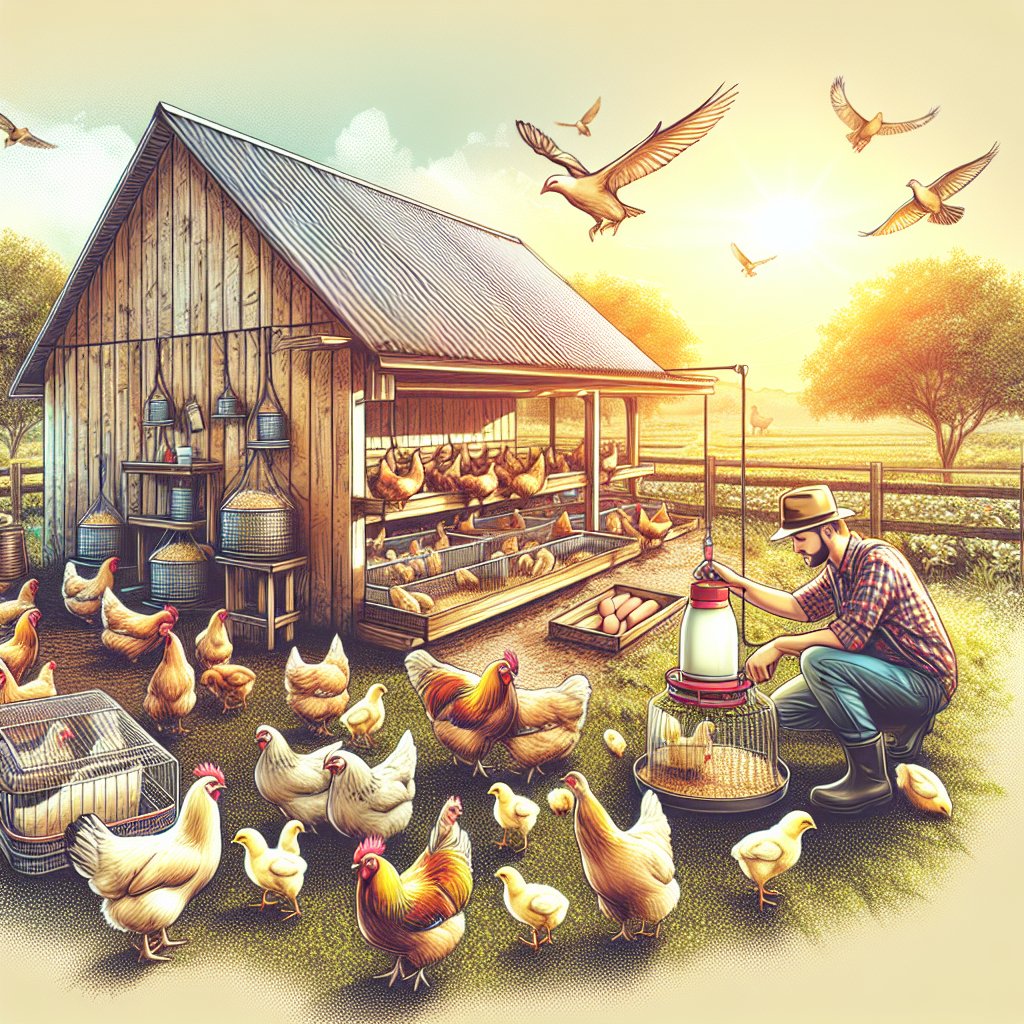
Raising healthy poultry on a small farm requires a combination of knowledge, dedication, and attention to detail. Poultry farming can be a rewarding endeavor, providing fresh eggs, meat, and even companionship. However, to ensure the health and productivity of your flock, it’s essential to implement best practices in their care and management. This article will explore key strategies for maintaining a healthy poultry flock, focusing on nutrition, housing, disease prevention, and overall management.
Nutrition and Feeding
Proper nutrition is the cornerstone of raising healthy poultry. A balanced diet not only supports growth and egg production but also strengthens the immune system, helping birds resist diseases. Poultry require a diet rich in proteins, carbohydrates, fats, vitamins, and minerals. The specific nutritional needs can vary depending on the type of poultry, their age, and their purpose (e.g., egg-laying or meat production).
Understanding Nutritional Needs
Chickens, ducks, turkeys, and other poultry species have different dietary requirements. For instance, laying hens need a diet high in calcium to support eggshell production, while broilers require more protein for muscle development. It’s crucial to provide species-specific feed that meets these needs. Commercial poultry feeds are formulated to provide balanced nutrition, but it’s also possible to supplement with grains, vegetables, and other natural foods.
Feeding Practices
Feeding practices can significantly impact the health of your poultry. It’s important to provide clean, fresh water at all times, as dehydration can quickly lead to health issues. Feed should be stored in a dry, rodent-proof container to prevent contamination. Additionally, feeding should be done at regular intervals to establish a routine, which can help reduce stress in the flock.
Housing and Environment
The environment in which poultry are raised plays a critical role in their health and well-being. Proper housing protects birds from predators, harsh weather, and disease. It also provides a comfortable space for resting, nesting, and socializing.
Designing the Coop
A well-designed coop is essential for maintaining a healthy flock. The coop should be spacious enough to allow birds to move freely, with adequate ventilation to prevent the buildup of ammonia from droppings. Nesting boxes should be provided for laying hens, and perches should be available for roosting. The coop should also be secure, with sturdy doors and windows to keep out predators.
Maintaining Cleanliness
Regular cleaning of the coop and surrounding areas is vital to prevent the spread of disease. Bedding should be changed frequently, and droppings should be removed to minimize odor and reduce the risk of infection. It’s also important to disinfect feeders and waterers regularly to prevent the growth of harmful bacteria.
Disease Prevention and Health Management
Preventing disease is a key aspect of raising healthy poultry. While some diseases can be treated, prevention is always more effective and less costly. Implementing biosecurity measures and monitoring the health of your flock can help keep diseases at bay.
Biosecurity Measures
Biosecurity involves practices that protect your flock from infectious diseases. This includes controlling access to your farm, quarantining new birds before introducing them to the flock, and minimizing contact with wild birds and other animals. It’s also important to practice good hygiene, such as washing hands and changing clothes after handling birds.
Monitoring and Health Checks
Regular health checks can help identify potential issues before they become serious. Look for signs of illness, such as changes in behavior, appetite, or appearance. Common symptoms to watch for include lethargy, coughing, sneezing, and diarrhea. If you suspect a bird is ill, it’s important to isolate it from the rest of the flock and consult a veterinarian for diagnosis and treatment.
Overall Management and Best Practices
Effective management of a small poultry farm involves more than just feeding and housing. It requires a holistic approach that considers the physical and psychological needs of the birds. By implementing best practices, you can ensure the health and productivity of your flock.
Record Keeping
Keeping detailed records of your flock’s health, production, and management practices can help you make informed decisions. Record keeping allows you to track egg production, growth rates, and any health issues that arise. This information can be invaluable for identifying trends and making adjustments to improve the overall health and productivity of your flock.
Providing Enrichment
Poultry are intelligent and social animals that benefit from environmental enrichment. Providing opportunities for foraging, dust bathing, and social interaction can improve their quality of life and reduce stress. Simple additions like hanging vegetables, providing dust baths, and allowing access to outdoor spaces can make a significant difference in the well-being of your birds.
In conclusion, raising healthy poultry on a small farm requires a comprehensive approach that addresses nutrition, housing, disease prevention, and overall management. By understanding and meeting the needs of your flock, you can enjoy the many benefits of poultry farming while ensuring the health and happiness of your birds.

